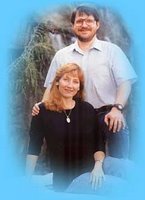So You Think that Idea is Unique?

It began with a conversation over dinner.
Over sixty Christian novelists had come to Atlanta for the Christian Booksellers Convention, and about ten of us went out to a restaurant to talk--well, what we almost always talk about: books. And writing.
It wasn't long before the conversation turned to ideas, and we chuckled as we talked about how beginning writers want to guard their idea at all costs. Experience had taught us that ideas are in the air, you really can't guard a concept. New writers often worry about someone stealing their idea, but trust me, no one wants to take it--most writers want to write up their own ideas. With few exceptions, what matters isn't the idea, but how a writer brings that idea to life.
So we proposed an experiment--we'd give our internet group the opportunity to take four common elements and write a short story. We'd publish the book and give all the profits to a worthy charity. And in the process, we'd have a lot of fun.
That dream became a reality last February when the novelists of ChiLibris released What the Wind Picked Up and designated that all royalties will support the work of Samaritan’s Purse, a nondenominational evangelical Christian organization providing spiritual and physical aid to hurting people around the world.
Our stories had to begin with this unspectacular first line: The wind was picking up. Each short story had to include 1) a case of mistaken identity, 2) a pursuit at a noted landmark, and 3) an unusual form of transportation. Finally, each story had to end with So that’s exactly what she did. We'd heard that Hitchcock used those three elements to create North by Northwest, so we figured a few stories had to be lurking in there . . .
In addition to the twenty-one entertaining and incredibly different short stories by authors such as James Scott Bell, Karen Ball, Robert Whitlow, and Jefferson Scott, the book includes a section of advice on writing from many other novelists. The entire book was a volunteer effort, including the cover design, donated by Kirk DouPonce from Dog-Eared Design.
The twenty-one tales range from romantic to hilarious, but the writing advice section will be especially valuable for anyone who might like to write for publication.
So, if you're looking for an entertaining read and a worthwhile project, order a copy of What the Wind Picked Up. And you might be amazed at how many ways authors can spin a tale.
What the Wind Picked Up





















